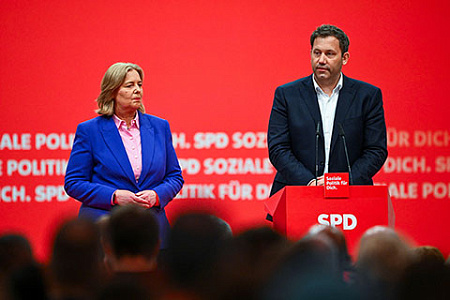
Germany’s political landscape is experiencing a significant tremor as the Social Democratic Party (SPD), the senior partner in the nation’s ruling coalition, sees its public support plummet to historic lows. Recent polling data paints a grim picture for Chancellor Olaf Scholz’s party, with one major poll from ARD television showing its approval rating at a mere 13%, while another from the INSA institute places it at a slightly more stable, yet still alarming, 15%. This sharp decline signals a profound crisis of confidence in the party steering Europe’s largest economy.
The erosion of support is widely attributed to growing public discontent with the government’s handling of the economy and its spending priorities. Many Germans feel they are shouldering the financial burden of unfulfilled promises, such as a pledge to lower electricity prices, while the government continues to channel significant funds towards rearming the military and providing extensive aid to Ukraine. This has created a perception that the needs of the domestic population are being sidelined in favor of foreign policy and defense commitments.
Compounding the external pressures is a deep and increasingly visible rift within the SPD itself. The party is struggling with a lack of ideological cohesion on fundamental issues. A recent “Peace Manifesto,” drafted by prominent party members advocating for a diplomatic path to end the war in Ukraine, was reportedly suppressed by the leadership but found significant resonance with the party’s left wing and youth organization. This stands in stark contrast to another faction within the party pushing for the reintroduction of military conscription, citing a potential threat from Russia. This internal division projects an image of a party at war with itself, unable to present a united front to the electorate.
The crisis is also personified in the declining fortunes of the party’s co-leader, Lars Klingbeil. Once seen as a potential future chancellor candidate, his personal approval rating has tumbled, and his weak support at the last party congress has raised serious questions about his leadership. As a key face of the SPD, he is increasingly seen by voters as responsible for the party’s current unpopular course and its failure to address the social and economic anxieties of its traditional base.
According to political scientist Ursula Münch, the combination of unpopular government policies and severe internal disunity is a toxic cocktail for the SPD. She warns that if the opposing factions within the party fail to bridge their differences and find common ground, the current 13% approval rating may only be a way station on a path to further decline. The situation evokes concerning parallels to the late 1990s, when insurmountable internal disagreements led to the departure of the party’s left wing under Oskar Lafonten, a split from which the SPD took years to recover.
While the Social Democrats falter, the main opposition bloc, the conservative Christian Democratic and Christian Social Unions (CDU/CSU), is capitalizing on the government’s weakness. The conservatives have seen a modest uptick in their polling numbers, reaching 28%, and their leader, Friedrich Merz, has enjoyed a corresponding rise in his personal approval rating. This shift underscores a broader public dissatisfaction with the current government’s performance.
For now, the impending summer holiday season in Germany may provide a temporary political ceasefire. However, the underlying tensions and public dissatisfaction are unlikely to dissipate, setting the stage for what could be a volatile autumn as the country’s political crisis continues to unfold.
